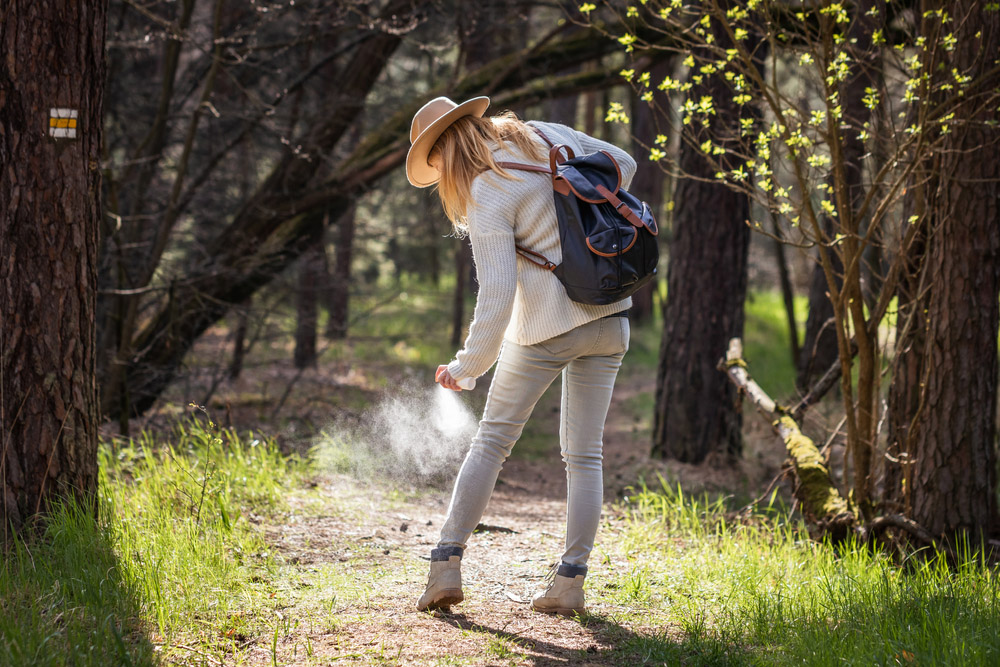As the warmer months approach, spending time outdoors becomes more enjoyable. However, along with the beautiful weather comes an increased risk of encountering insects that can bite or sting. While most insect bites and stings are harmless, they can sometimes cause discomfort, pain, and even allergic reactions. That’s why it’s important to take steps to prevent insect bites and stings and know how to treat them if they occur. We will explore some essential tips for bug safety to help you enjoy the outdoors without being bothered by bugs.
Prevention Tips:
- Use insect repellent: Applying an insect repellent that contains DEET, picaridin, or lemon eucalyptus oil can effectively repel mosquitoes, ticks, and other biting insects. Be sure to follow the instructions on the product label and apply it to exposed skin and clothing. Remember to reapply as needed, especially if you’re sweating or swimming.
- Wear protective clothing: When spending time outdoors, it’s a good idea to wear long-sleeved shirts, long pants, and closed-toe shoes. Wearing light-colored clothing can also help as it makes it easier to spot insects that may land on you.
- Avoid fragrances: Strong scents from perfumes, lotions, and soaps can attract insects. Consider using unscented products when spending time outdoors to minimize your risk of being bitten or stung.
- Keep windows and doors screened: Make sure your windows and doors have screens in good condition to prevent insects from entering your home. Repair any holes or tears in screens promptly to keep bugs out.
- Remove standing water: Mosquitoes breed in standing water, so it’s important to eliminate any stagnant water sources around your home, such as birdbaths, flower pots, and clogged gutters. Regularly empty and clean containers that collect water to prevent mosquito breeding.
Treatment Tips:
- Wash the affected area: If you’ve been bitten or stung by an insect, gently wash the affected area with mild soap and water to help reduce the risk of infection.
- Apply a cold compress: Applying a cold compress or ice pack to the bitten or stung area can help reduce swelling, itching, and pain. Avoid applying ice directly to the skin to prevent frostbite, and limit the duration of the cold compress to 10-15 minutes at a time.
- Take over-the-counter medications: Over-the-counter antihistamines, such as diphenhydramine (Benadryl), can help relieve itching and swelling caused by insect bites and stings. Nonsteroidal anti-inflammatory drugs (NSAIDs), such as ibuprofen (Advil) or acetaminophen (Tylenol), can help reduce pain and inflammation.
- Avoid scratching: Although it may be tempting to scratch the itchy bite or sting, avoid doing so, as it can cause further irritation and increase the risk of infection.
- Seek medical attention if necessary: If you experience severe symptoms, such as difficulty breathing, chest pain, dizziness, or a severe allergic reaction, seek immediate medical attention. These can be signs of a more severe reaction to an insect bite or sting.
In conclusion, taking steps to prevent insect bites and stings and knowing how to treat them if they occur is essential for bug safety. By using insect repellent, wearing protective clothing, eliminating standing water, and taking prompt action to treat bites and stings, you can reduce your risk of being bothered by bugs and enjoying the great outdoors safely. Remember to seek medical attention if you experience severe symptoms or have concerns about a potential allergic reaction.

